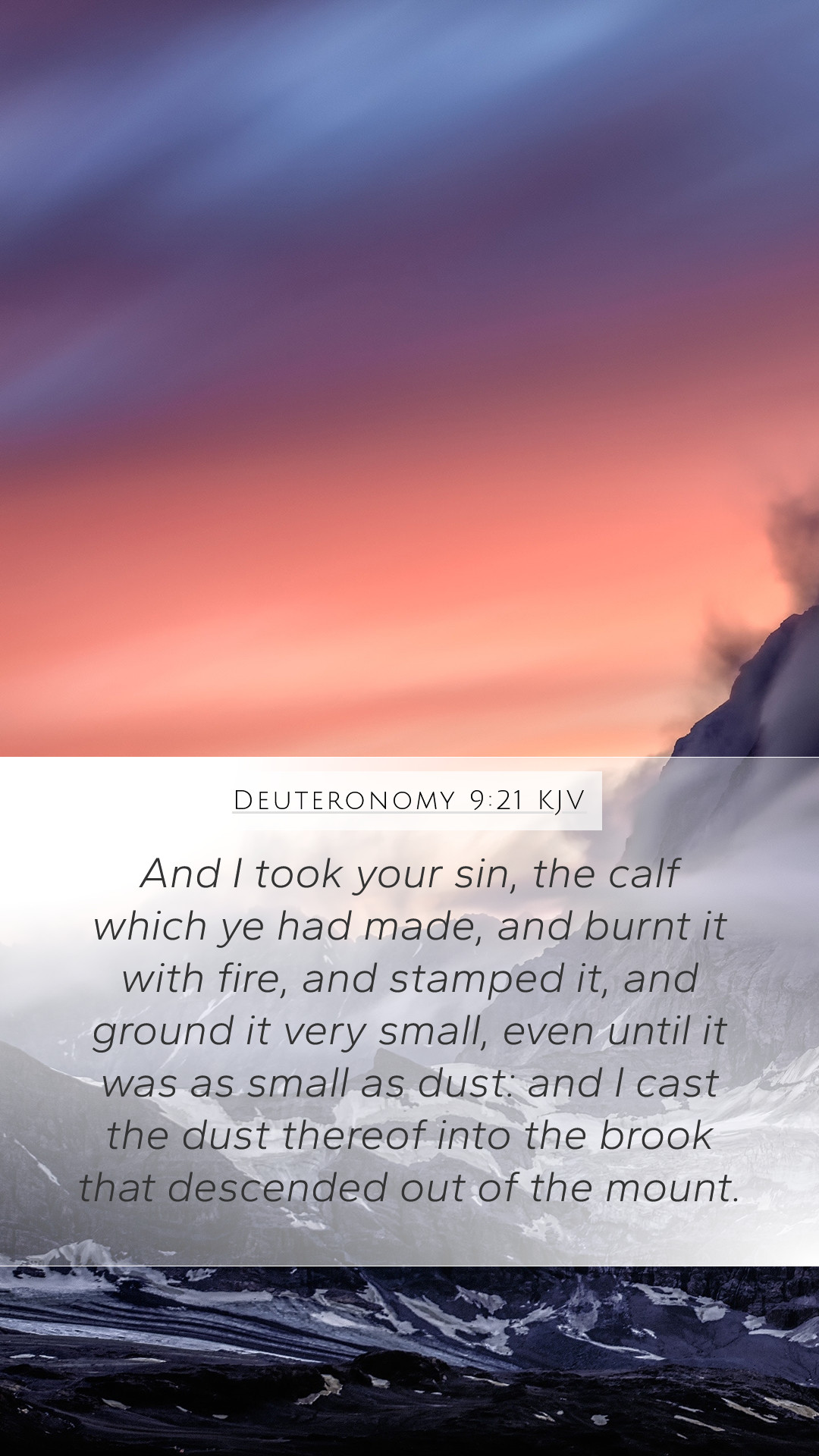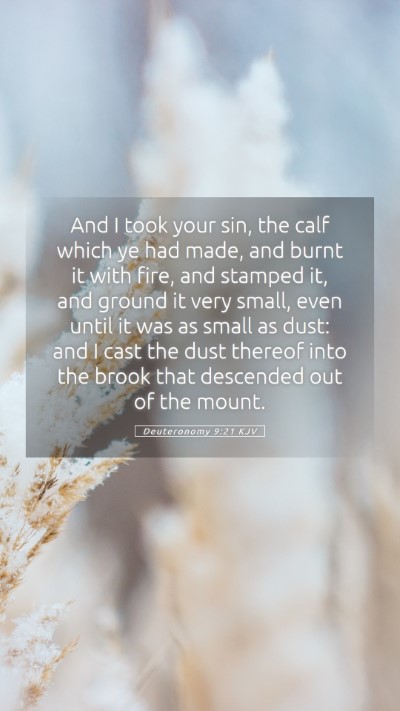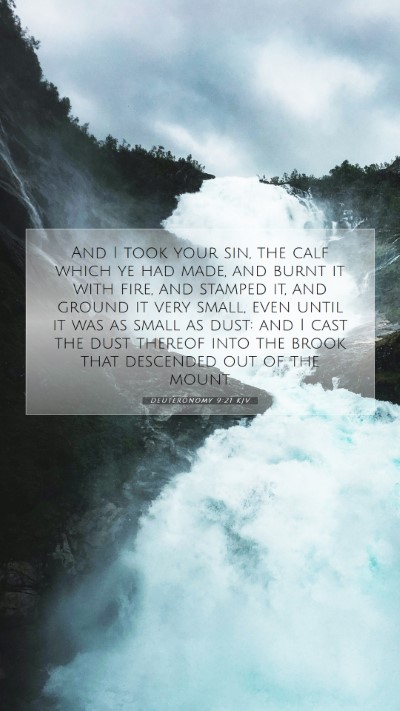Understanding Deuteronomy 9:21
Bible Verse: "And I took your sin, the calf which ye had made, and burnt it with fire, and stamped it, and ground it very small, even until it was as small as dust: and I cast the dust thereof into the brook that descended out of the mount." (Deuteronomy 9:21)
Overview
Deuteronomy 9:21 reflects a pivotal moment in Israel's history, where Moses recounts the grave sin of the Israelites during his absence when they created the golden calf. This verse provides a vivid description of Moses' actions in dealing with this sin, symbolizing the severity of idolatry and the call for purification.
Bible Verse Meanings
- Idolatry and Repentance: The act of creating the golden calf represents a significant moment of betrayal against God's commandments. Moses’ destruction of the calf emphasizes the necessity of total repentance and the rejection of false idols.
- The Element of Fire: Fire is often used in Scripture as a purifying element. Moses burning the idol indicates complete destruction and cleansing from sin, reinforcing that true repentance involves not just acknowledgment but a decisive break from sin.
Bible Verse Interpretations
According to Matthew Henry, this passage illustrates the dire consequences of sin and idolatry. Henry emphasizes that the Israelites' actions required strong leadership and decisive measures to rectify their disobedience.
Albert Barnes expands on this by highlighting the symbolism of grinding the calf into dust, which serves as a powerful metaphor for how completely God wishes to obliterate sin from the lives of His people.
Bible Study Insights
This verse can serve as a compelling focal point for Bible study groups. When examining this passage, consider discussing:
- The concept of idolatry in contemporary society.
- Ways to purify one's life and heart before God.
- How communal sin can affect a nation or community.
Symbolism and Significance
Adam Clarke points out that the act of casting the dust into the brook symbolizes the thoroughness with which God deals with sin—nothing remains, and it is forever removed from His sight. This conveys the message that God can completely forgive and restore those who truly repent.
Application of the Verse
Applying Deuteronomy 9:21 in daily life encourages believers to reflect on the idols they may be harboring in their hearts. It serves as a reminder of the importance of sincere repentance and the need to seek God’s forgiveness through Jesus Christ.
Related Bible Cross References
- Exodus 32:19-20: The account of Moses' reaction to the golden calf.
- Leviticus 26:30: God’s stance on idolatry and its consequences.
- Psalm 106:19-20: A recounting of the idolatry of Israel and God’s disappointment.
Conclusion
Deuteronomy 9:21 not only offers a historical account but serves as a timeless reminder of the seriousness of sin and the nature of true repentance. In-depth Bible verse analysis of this passage can lead to profound personal transformation and a deeper understanding of God's grace and forgiveness.
Exploring More about Bible Verse Meanings
For those keen on further exploration, consider engaging with various Bible study resources that delve deeper into the themes of repentance, idolatry, and God's forgiveness displayed throughout Scripture.


